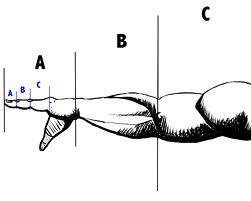How Often should I clean my Air Conditioner Coils?
Clean My AC Coil
Yuck! Cleaning your ac coils is not fun, but is very important to keeping the air quality up, and saving you money on your air conditioner bill and repairs. After years of build-up, dirt blocks the air conditioner unit from working properly, and can cause overheating which often results in a breakdown of your air conditioner.
Why should I clean at all?
Cleaning your air conditioner coils does a couple of things for you. First, it helps to decrease costly repairs and replacement to your air conditioner. Second, it can decrease your air conditioning bill as a cleaned out air conditioner will do a better job of cooling your home. Third, it can improve the air quality in your home. Keeping your air conditioner coils cleaned will reduce aiborne contaminates. These contaminates decrease the air quality of your home and can lead to heightened sinus irritation as well as increased asthma symptoms. Coil cleaning is necessary in keeping your unit running in perfect condition. How often the coils should be cleaned really comes down to personal preference. Well we are on the subject of decreased air quality, changing the filters in your home regularly will also increase the air quality in your home.
How often should I clean?
Good Question. I hate to say it, but like so many things in life how often you should clean your air conditioner coils is really an it depends answer. Generally, we recommend cleaning your coils at least once every 6 months. You will need to clean more frequently depending on your conditions. Do you live in an area with lots of construction and dust blowing around? Do you have a ton of leaves and other debris coming into contact with your air conditioner coils? If so, you will need to clean your air conditioner coils more frequently. Regardless of how frequently you clean we would highly recommend setting a regular maintenance schedule.
The cleaning process
Insistent on cleaning the air conditioner yourself? Let me give you my strong recommendation first. Call a heating and cooling expert to take a look at your air conditioner. There is a lot more to preparation for the summer than just cleaning your air conditioner coils. An inexpensive visit today can save you a costly repair visit tomorrow, not to mention a decrease in your air conditioner bill throughout the summer.
Having said that, on to cleaning your air conditioner coils. Make sure you turn off the power to your air conditioner. Get a garden hose and wash off the coils from the inside out. Note: this is the quick and easy way to clean your coils. Depending on the level of dirt you may need a more thorough cleaning. You may need your Refrigerant Pressures checked, and you will likely need your blower cleaned out if the coils are dirty. My final advice, get the quick check-up from a professional. The $75-$100 you save is not worth it in the long run.
Live in the Kansas City Area? Call the Kansas City Air Conditioning experts at Priced Right Heating and Cooling. Furnaces installed for as little as $1,300. If you have we would be happy to answer them. 913-713-5911
Understanding Fibonacci Sequences
The Fibonacci Series
Let’s takes a look at the Fibonacci series, what it is and how it came about, the Fibonacci series relationship to the Golden mean and surprising prevalence in all of nature.

The number sequence known as the Fibonacci series was “discovered” by an Italian mathematician named Leonardo Pisano. The name Fibonacci is short for filius Bonacci which means “the son of Bonaccio” which makes some sense seeing as his father was named Guglielmo Bonacci. Over time Leonardo began to be known just as Fibonacci. Just as in a western culture context a son of John simply became known as Johnson.
Put two rabbits together and before you know it you’ve got rabbits, rabbits everywhere. The issue of rabbits and their almost legendary multiplying capabilities has been known of for centuries. Being a mathematician Fibonacci became interested and set out to investigate how fast rabbits could reproduce under ideal circumstances. The results are now known as the Fibonacci series
When you take into consideration that a pair of rabbits reaches maturity in one month and the gestation period is also one month how many pairs will we have at the end of a year?
Month #0 there is 1 pair,
Month #1 the pair has mated but not yet given birth, so we still have I pair.
Month #2 our original pair has given birth, making 2 pairs.
Month #3 the original pairs births again, the second pair mates but they don’t give birth. Now we have three pair.
Month #4 our original gives birth, the pair born in month 2 gives birth and the pair born in month 3 mate giving us 5 pairs.
In month #5 every pair that was alive two months ago gives birth so now we have 8 pairs of rabbits.
I believe you get the idea but just for fun can you determine how many pairs of rabbits we would have at the end of two or three years? Have you determined from our example how the Fibonacci series flows? Every number in the series is the sum of the two numbers preceding it. It goes like this:
0, 1, 1, 2, 3, 5, 8, 13, 21, 34, 55………… to infinity.
When Fibonacci uncovered the Fibonacci series, I am relatively certain he never knew how this ingenious numbering system occurs literally everywhere. The pattern of florets of a flower, the bracts of a pine cone, or even the scales of a pineapple these numbers are applicable to the growth of every living thing including human beings. For example we have 8 fingers, 5 digits on our hands, 3 bones in each finger, 2 bones in 1 thumb and 1 thumb on each hand. And the ratio between our forearms and our hand is known as the “Golden ratio” or “divine proportion”. The Golden ration is a number approximately 1.618 we know as Phi.

Phi, identified by Euclid two thousand years ago for its role in the construction of the pentagram and the ratio is found throughout nature including the shapes of galaxies containing billions of stars, and yes; even the technical analysis of the financial markets. When we recognize that the ratios of the Fibonacci sequence numbers converge on Phi their importance in how we as traders analyze the markets cannot be understated.
Want to understand trading how to? Forex Market Preview reveals the secrets you need to be a successful currency trader. Jason Stapleton is a master trader and will help with the trading psychology and ratio analysis that will help make you not only profitable but consistently profitable.

